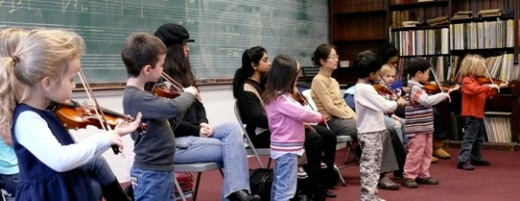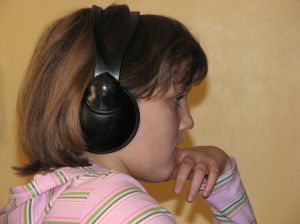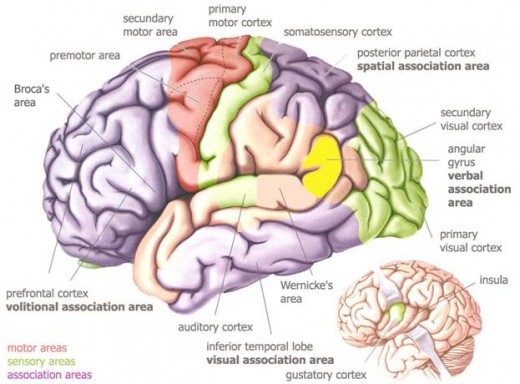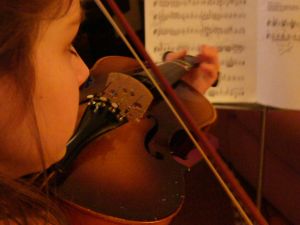Benefits of Music Education in Schools for Children - Fact or Myth
Why Music Education for Children is important?
Music education is important for children brain development! Recent studies have shown excellent correlation between benefits of musical training for children with certain intelligence and mental abilities. But why parents are lack of knowledge about benefits of music education for children especially musical training? It is because society was influencing by entertainment industries that more emphasize music as on commercial commodities. people thus more focus on music as a commercial entertainment rather than music for children.

Music education for children got worldwide attention since a study assumes that listening classic Mozart sonata have impacted college student’s spatial-temporal task --not for infant. Nevertheless, commercial industry have twisted “Mozart Effect” and spawned it by various media such books, CDs, internet, which claiming that listening to classical music can make baby "smarter" (See: Myth of Mozart Effect below).
Fact or Myth: Passive Listening vs. Musical Training
Commercial has spawn information by claiming listening music (passive) “Mozart Effect” impacted on baby brain development and ballooning it as if for children --even though the study objects are college students, not babies or infant. Commercial claim is a myth, just listening music only make you relax and entertain yourself. The true is that music training (active) which more have scientific evidence that music education impacted on brain development significantly. Here the the fact and myth about the benefits of music education for children:

- Myth of Passive Listening. Listening music is a passive activity and did not affect significantly on brain development and intelligence. There is no proper study or research that convincing about it yet. In other words, such claim is weak on scientific evidence. Listening music activity is not genre of music education for children. Listening music is only result on relaxation and entertainment. It’s a myth created by commerce and industrial.

- Fact of Musical Training. Music education for children that have effect on intelligence development is musical training. Students capability on learning have significantly affected by musical training. Music school is able to stimulate children creativity since early ages. In a nutshell, many research results have found that students who involve in music training or music school are more “smarter” or faster to learn compare to students who did not involve in musical training. That’s more convincing us, as a scientific fact.
Myth of “Mozart Effect”
Frances H. Rauscher on his article “Can Music Instruction Affect Children's Cognitive Development?” have made short and clear elaboration of various study which claim that listening to music can improve children's academic abilities. Rauscher opening his article by explaining about “Mozart Effect”. Here two important paragraphs that better quoted directly so you can read it without distorting by my interpretation.

- The term "Mozart Effect" refers to the finding that 36 college students who listened to 10 minutes of a Mozart sonata scored higher on a subsequent spatial-temporal task than after they listened to relaxation instructions or silence. The effect lasted approximately 10 minutes (Rauscher, Shaw, & Ky, 1993). Although the effect was replicated by several researchers, other researchers were unable to reproduce it (Hetland, 2000a). Research on the causes and limitations of the effect in adults is ongoing (Husain et al., 2002).
- The Mozart Effect was studied only in adults, lasted only a few minutes, and was found only for spatial-temporal reasoning. Nevertheless, the finding has spawned a Mozart Effect industry that includes books, CDs, and Internet sites claiming that listening to classical music can make children "smarter." In fact, no scientific evidence supports the claim that listening to music improves children's intelligence. Two related studies tested the Mozart Effect with 103 children ages 11 to 13 years (McKelvie & Low, 2002). The researchers found no experimental support for the effect in children, concluding that "it is questionable as to whether any practical application will come from it" (p. 241). Although the Mozart Effect is of scientific interest, its educational implications appear to be limited.
Benefits of Music Education
The scientific research about music that impacted brain intelligence development on children is based on comparatives study on children which involve with music training compare with children with those who did not. From various studies about benefits of music education for children, here I resume two excellent research results:
- Laurel Trainor with colleagues had compared preschool children who had taken music lessons with those who did not. Children with some music training showed larger brain responses. Research found that musical training impacted to brain auditory cortex. “We therefore hypothesize that musical training (but not necessarily passive listening to music) affects attention and memory, which provides a mechanism whereby musical training might lead to better learning across a number of domains," Trainor said. Laurel Trainor is director of the Institute for Music and the Mind at McMaster University in West Hamilton, Ontario.


- Constant music training is basic requirement to enhance children’s learning achievement. A study had analyzed the students of lower socioeconomic who took music lesson grades 8-12; compared to non-music students. Research result was amazing: student with music lesson are able to increase their Math score significantly rather than non-music students. Reading, History, and Geography and even social skills also soared by 40 percent. But during the first eighteen month, the majority of children lose interest in music lessons.
- “Parents are to blame if their children quit music education,” said Tatiana Bandurina, author of Voices of Our Children: Stories of Music Education. She states that 80 percent percent of children quit music education because of their parents. The remaining 20 percent go to unprofessional music teachers and extra family surrounding of the child. In many cases, parents cannot find the necessary information about what their part is in the music education of children.
School Quality and Music Education
Parent should understand that there is relevant correlation between qualities of school music program with students learning achievement. Here some facts and figures that can help parent to reconsider when choosing school for their children. These facts describe the benefits of music education for children through school music programs.
- High-Quality of Music Education. The best school should have excellent music education for children. Students in high-quality school music programs score higher on standardized tests compared to students in schools with deficient music education programs, regardless of the socioeconomic level of the school or school district. Students at schools with excellent music programs had higher English and Math test scores across the country than students in schools with low-quality music programs. This is the best of the best school for your children.

- Top-Quality of Music Education. If school did not provide high quality music education for children, at least school provides the top-quality music programs for your consideration. Research shown that students in top-quality music programs scored 22 percent better in English and 20 percent better in Math than students in deficient music programs.
- Top-Quality Instrumental Programs. Not all parents can afford a school with high quality music education for children. School with top-quality instrumental programs is excellent alternative. Students in top-quality instrumental programs scored 19 percent higher in English and 17 higher in Math than students in schools without a music program.
- Lower-Quality instrumental programs. This is the last choice if school did not able to provide a good music education for children. Study showed that students in all regions with lower-quality instrumental programs scored higher in English and Math than students who had no music at all. Advice for parents: there is a will there is a way: send your children to music course.
Tips: How to Choose Music Instruments for Children?
If you want to choose music instrument to your children, you should consider children ages and type of music instrument. Learning and playing music should be fun activity for children. You should choose instrument that suitable to their hand and body, example, guitar is not good for young children because their fingers is not yet strong enough, but guitar is good for teenagers. For very young child, just choose keyboard music, simple flute, a type of drum, or an instrument that easy to hold and play. Be happy playing music with your kids!






